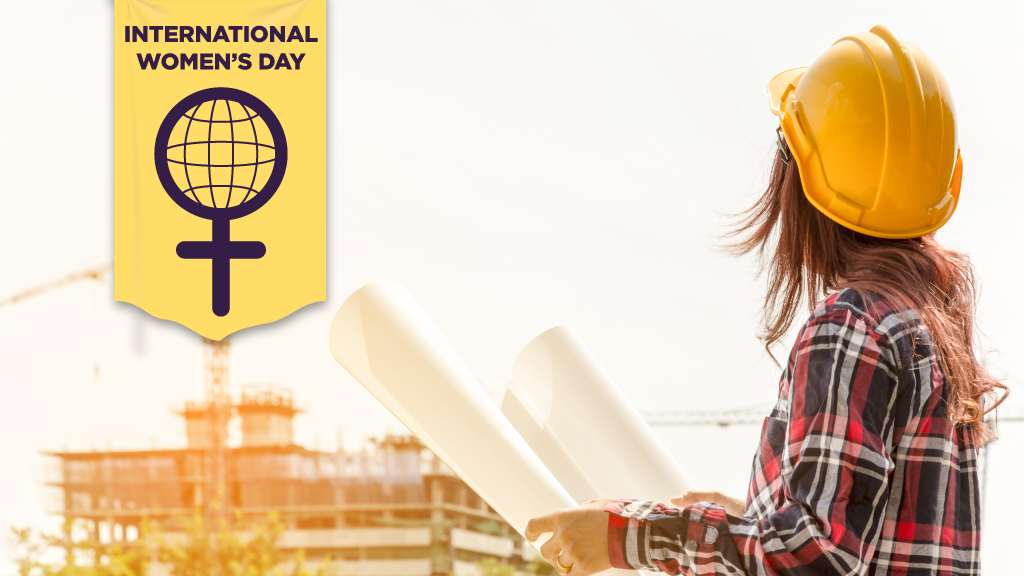International Women’s Day (IWD) is upon us.
And with it, there will be all those awkward and inevitable conversations about why we honour IWD, and why there isn’t an International Men’s Day. We can answer that question.
There is an International Men’s Day and it’s held annually on Nov. 19. It has the laudable goal of celebrating the achievements and contributions of men.
So why do we need IWD? Because in 2021, there continues to be persistent inequalities between men and women. For example, Statistics Canada reports women earn 87 cents for every dollar earned by men. Unsurprisingly, women have a greater risk of living in poverty due to their over-representation in low-wage, precarious work. Women in middle management roles are 60 per cent less likely than men to be promoted to executive ranks.
Women are also more likely to experience unwanted sexual behaviour in the workplace. According to the Ending Violence Association (EVA) of B.C., 52 per cent of women have been sexually harassed in the workplace; 28 per cent have been subject to non-consensual touching in the workplace; and 89 per cent of women have taken steps to avoid unwanted sexual advances at work.
The EVA BC research was not specific to the construction industry. For that, we turn to the 2017 report, Enhancing the Retention and Advancement of Women in the Trades in British Columbia, funded by the Canada-British Columbia Labour Market Development Agreement. In many ways, it’s an indictment of the industry because it reveals a pattern of sexual assault, bullying, discrimination, exclusion and other incivilities experienced by women in the trades. Page 39 of the report states: “In addition to the daily exposure to sexist behaviour and sexually explicit language, many women said they experienced unwanted physical contact by colleagues. In one group, almost half of the women reported being sexually assaulted by a colleague, with one commenting that this is ‘probably one of the reasons a lot of women leave (the trades).’”
Too many women in the skilled trades face these extreme scenarios as well as the more subtle forms of bullying and exclusion, such as telling us we should smile more and maybe wear a little makeup, asking us if we can actually do the job we’ve been brought in to do, and writing anonymous and sexually explicit messages to us on the walls of the portable toilet.
On this IWD, we are responding with our collective voice that we aren’t going anywhere. We enjoy what we do, and we’re going to keep doing it. That is, building roads and bridges, schools and hospitals, houses and apartments, offices and industrial warehouses. We’ll ensure vital goods are delivered and crucial infrastructure is maintained.
Furthermore, we know the construction industry needs women. According to BuildForce Canada, 254,800 people, or 21 per cent of the current construction workforce, is expected to retire by 2027. That’s 14,000 more people retiring than are expected to enter the construction industry over the same period.
The outlook for British Columbia is especially grim. BuildForce data indicates 40,800 construction workers will retire by 2027, and only 32,800 people will enter the industry. Buildforce warns without an adequate supply of local workers, “the industry will, with increasing regularity, be required to recruit workers from outside the province’s construction sector or outside the industry.”
Women represent only about five per cent of the skilled construction trades, but that number will grow. Already, we’re seeing favourable data from the Industry Training Authority; the ITA’s last quarterly report ending Dec. 31, 2020 showed the International Brotherhood of Electrical Workers locals 993 and 230 with 23 per cent and 13 per cent female apprentices, respectively. And other union training schools and open-minded contractors are also seeing more than double the average proportion of women apprentices in their ranks.
To all the women out there, happy International Women’s Day. And if you’re a woman in the trades, celebrate that the future is quite literally yours.
Ashley Duncan is a Red Seal insulator and vice-president of the BC Insulators Local 118. Chelsea French is a fourth-year commercial transportation mechanic apprentice and executive board member of the International Union of Operating Engineers Local 115. They co-chair Build TogetHER, the women’s committee of the BC Building Trades. Send comments and Industry Perspectives op-ed ideas to editor@journalofcommerce.com.









Recent Comments
comments for this post are closed